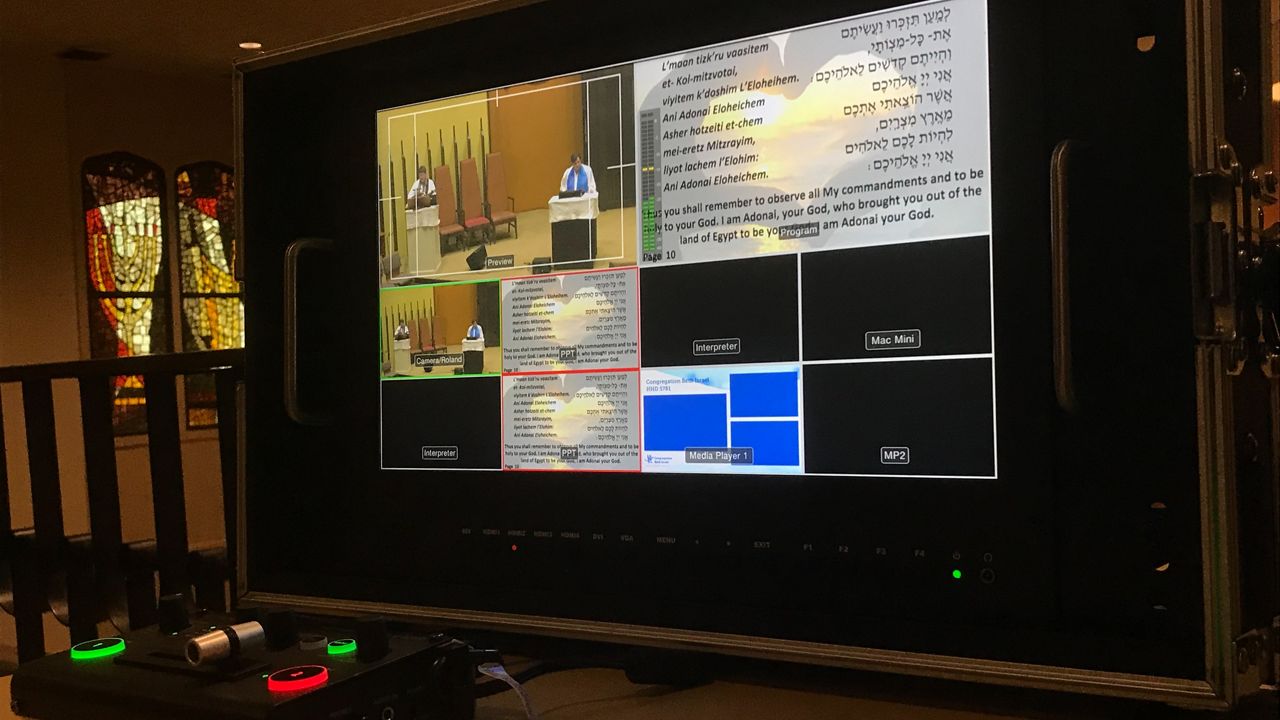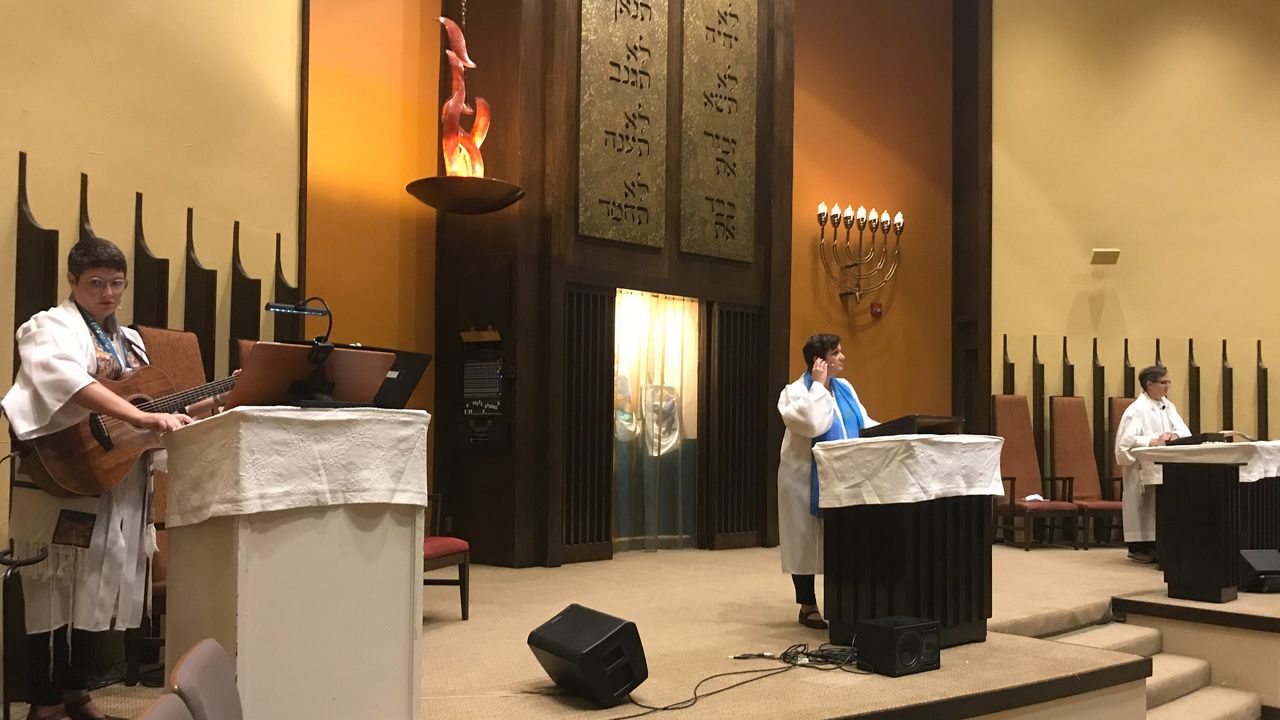TEXAS — Unlike the observance of Passover, which typically takes place inside the home and translated well to Skype and Zoom calls, worship for Rosh Hashanah and Yom Kippur typically takes place inside a synagogue. That’s had Texas rabbis getting creative for the Jewish High Holidays amid a pandemic.
Most synagogues across the Lone Star State are planning to go remote for the High Holidays, with the exception of orthodox communities. But even more observant congregations are making changes to their services this year.
Rabbi Kelly Levy put on her white robe customarily worn on the High Holidays a week before Rosh Hashanah. Levy explained that she and her co-clergy were pre-taping several High Holiday services to prepare for the real event.
“Four different services,” said Levy. “Our Rosh Hashanah children’s service, our Rosh Hashanah family service, our Yom Kippur children’s service and our Yom Kippur family service.”
Due to the pandemic, Congregation Beth Israel, a Reform synagogue in Austin, is forgoing in-person services and instead offering worship online.
Levy said the main Rosh Hashanah and Yom Kippur services will be live-streamed, with some pre-taped segments dropped in throughout each service. One of those will be a pre-produced choral number from the temple’s choir — videos from each choir member mixed together into a final piece.

Services will also be somewhat shorter compared to the typically long High Holiday worship, and Levy said that’s partially on purpose. Acknowledging short attention spans in front of a computer screen, Levy and her fellow clergy members worked to cut down the service. At the same rate, Levy mentioned that without the choir and without the traditional marching of the Torah around the sanctuary, the service would be shorter anyway.
“You’re still saying all the things that you need to say, and all the prayers that you need to say, and participating as much as you normally would,” said Levy. “But the service itself has a few less readings, a few less songs.”
In order to make congregants feel more involved in remote services, Levy’s synagogue is encouraging people to dress up as if they were coming to temple. Congregants are also being allowed to pick up siddurim, or prayer books, to help follow along with services at home.
“Even though we create a slideshow each and every week for Shabbat, and we have for all of our High Holidays, they miss the feeling of holding a book,” said Rabbi Levy. “It reminds them being in this space.”
Prayer books are staying put at Congregation Tiferet Israel, Austin Modern Orthodox synagogue. Rabbi Daniel Millner said the congregation’s strict adherence to Jewish law prevents them from taking their services online.
“We don’t use electricity or electronics of any type or technology of any type on the Sabbath or on any holy days,” said Rabbi Millner. “High Holidays are included in that, and so we are having in-person services.”

Millner said Tiferet Israel’s services are being shortened as well, but not necessarily for attention span purposes.
“Our concern is a bit different,” said Millner. “We want to minimize the amount of time that people are spending indoors. We know that even if people are wearing masks, the longer you sit in place, the more likely you are to fidget with your mask or get tired of it.”
While Millner said his congregation has been able to hold in-person Shabbat services inside their small shul, the rabbi is anticipating a much larger crowd for Rosh Hashanah and Yom Kippur. The synagogue’s volunteer medical board, comprised of area doctors and healthcare workers, believed it would be best to conduct High Holiday services inside the gymnasium at the Dell Jewish Community Center.
“This whole space is going to be opened up to accommodate a platform and an ark, and spacing that’s safe for everybody,” commented Rabbi Millner, pointing at space that was occupied by exercise bikes at the time.
A reservation is required for the in-person services at the JCC. Millner said so far, only about 40 people have reserved spots.






